Are you worried that your private conversations are being listened to by a neighbor? It’s alarming to think someone could be tapping into your everyday life.
And unfortunately, technology makes it easier and easier for this behavior to take place. Luckily, there are some steps you can take to outsmart the eavesdropper by using methods like blocking or jamming their listening device.

In this blog post, we will explain how to tell if a neighbor is using such a device and give you several tips on how to stop neighbor listening device. So keep reading to learn more about protecting yourself from neighborhood snooping!
What is a Neighbor Listening Device?
A neighbor listening device is any type of technology used to secretly listen in on conversations or monitor activities in a neighboring residence. These devices can range from simple audio recording devices hidden within the walls to sophisticated spyware installed on electronic devices. The purpose of these devices is often to gather personal information or incriminating evidence.
It’s important to note that in most places, using a listening device without consent is illegal. So, if you suspect your neighbor is using one, it’s best to take action as soon as possible.
Can You Stop Neighbor’s Listening Device?
With the rise of technology, there has been an increase in the prevalence of listening devices used by nosy neighbors. Unfortunately, these listening devices can be quite difficult to detect in most cases as they are hidden within everyday objects. However, it is possible to stop your neighbor from using such a device successfully.
Start by checking for any unusual wiring or other changes made to items near your walls (like electronic appliances). If you think that your neighbor may have placed a bug somewhere on your property, installing noise-emitting machines such as white noise generators could act as an effective deterrent.
Another way to prevent surveillance is to hang thick drapes over windows and doors to reduce sound transmission and protect against eavesdropping. Finally, you can invest in privacy films for electronics that display confidential information; this should prevent anyone from spying on you from afar.
Why Should You Stop Neighbor’s Listening Device?
Most people want to feel secure in their homes and should be able to do so without worrying about a listening device in the hands of a nosy neighbor. Unfortunately, listening devices can get in the way of private conversations, eavesdropping on important phone calls, or collecting private information about your family.
Not only is it an invasion of privacy, but it is also illegal under the law. So, if you believe your neighbor is using a listening device, then it’s time to take action by preventing them from obtaining this intrusive technology.
Taking measures such as changing door locks and installing security systems can deter neighbors from accessing private spaces and stop them from using these kinds of spying tools. With more awareness, we can ensure that everyone feels safe in their homes.
5 Ways to Tell if Your Neighbor Is Using a Listening Device
1. Unusual Activity at Night
One way to tell if your neighbor is using a listening device is to pay attention to their activity at night. If you notice that your neighbor is up and about when they normally would be asleep, it could be a sign that they are trying to listen in on your conversations.
Additionally, if you notice strange lights or movement coming from their home at night, it could also be a sign that they are using listening devices.
2. Avoidance of Eye Contact
Another way to tell if your neighbor is using a listening device is if they start avoiding eye contact with you. If your neighbor suddenly starts averting their gaze or looking away when they see you, it could be because they feel guilty about eavesdropping on your conversations.
Additionally, if your neighbor starts acting strangely around you or seems nervous, it could also be a sign that they are using a listening device.
3. Unusual Requests for Information
If your neighbor starts making unusual requests for information, it could be a sign that they are trying to gather intelligence by eavesdropping on your conversations.
For example, if your neighbor asks you personal questions about your life or family that they wouldn’t normally ask, it could be a sign that they are trying to get information from you by using a listening device.
4. Unexplained Technological Issues
If you start having unexplained technological issues, it could signify that your neighbor is using a listening device. For example, if your phone lines are static or your internet connection is slow, it could be because your neighbor is tapping into your line and using a listening device.
Additionally, if you notice strange noises coming from your computer or TV, it could also be a sign that someone is eavesdropping on your conversations.
5. Missing Items
If you start noticing that items in your home are missing or have been moved, it could be a sign that someone has been in your home without your permission and has planted a listening device.
For example, if you notice that batteries are missing from your remote control or that picture frames have been moved, it could be because someone has been in your home and has placed a listening device in those areas.

9 Steps to Follow on How to Stop Neighbor Listening Device
Step 1: Detecting Unwanted Listening Devices
The first step in protecting yourself from unwanted listening devices is detecting them. Unfortunately, this isn’t as easy as it sounds—listening devices can be small and well-hidden, making them difficult to find unless you know where to look.
The two most common places for eavesdropping devices are electrical outlets and phone jacks. If you see any suspicious wiring or strange cords in these areas, it could be evidence of a listening device. Additionally, if you notice any odd noises coming from these areas (like clicking or buzzing sounds), that could also indicate the presence of a listening device.
Step 2: Investigate Potential Eavesdroppers
Once you’ve detected the presence of a listening device, your next step should be to investigate who may have planted it. Start by talking to your neighbors, landlord, or anyone who might have access to your home and ask if they know anything about the suspicious wiring or noises.
It’s also a good idea to research the company or individual who installed any home security systems you have in your home, as they may also be responsible for planting listening devices.
Step 3: Contact the Authorities
If, after investigating potential eavesdroppers, you still don’t know who is behind the listening device, it’s time to contact the authorities. Depending on the type of device you find, this could mean calling your local police department or even contacting the FBI.
The authorities will be able to help you identify who is responsible for planting the listening device and take legal action against them if necessary.
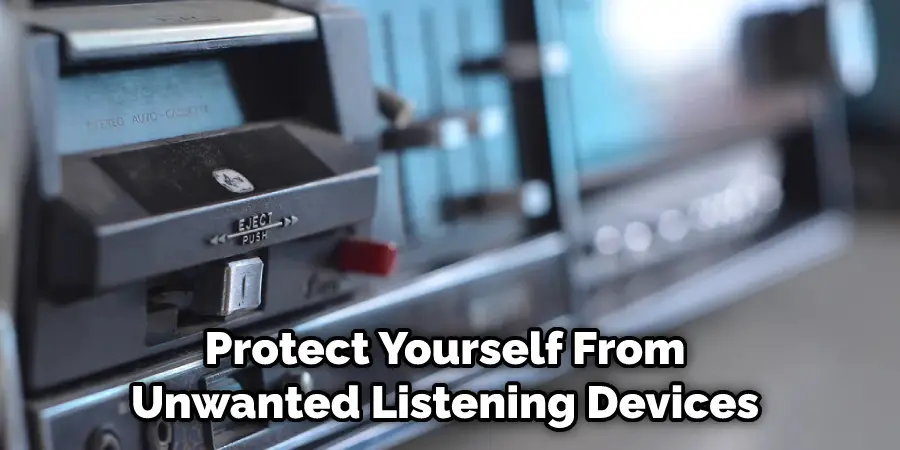
Step 4: Block Signals
In order to protect yourself from unwanted listening devices, you should block the signals they’re sending and receiving. This can be done by placing foil or other shielding material around the device.
It’s important to note that this won’t completely block out all transmissions—it will only reduce them. So, you may also want to invest in a signal jammer, a device that emits a strong electromagnetic signal that can disrupt transmissions from listening devices.
Step 5: Change Frequencies
Changing frequencies is another way to protect yourself from unwanted listening devices. It’s important to remember, however, that this isn’t foolproof—listening devices in your home or office may still be able to pick up the signals they’re sending and receiving. However, changing frequencies can make it more difficult for eavesdroppers to understand your conversations. You can also use an RF (radio frequency) detector to help you find any listening devices in your home or office.
Step 6: Use Encryption
If you’re concerned about your privacy, one way to protect yourself from listening devices is by using encryption. There are various encryption methods available, each with its own advantages and disadvantages.
Encrypting messages sent through digital devices (such as computers, smartphones, and tablets) can help protect your data from being intercepted by listening devices.
Step 7: Secure Your Home
Finally, one of the best ways to protect yourself from unwanted listening devices is to secure your home. Ensure all doors and windows are firmly closed and locked when you’re away, and block any entrances that could be used to gain access to your home.
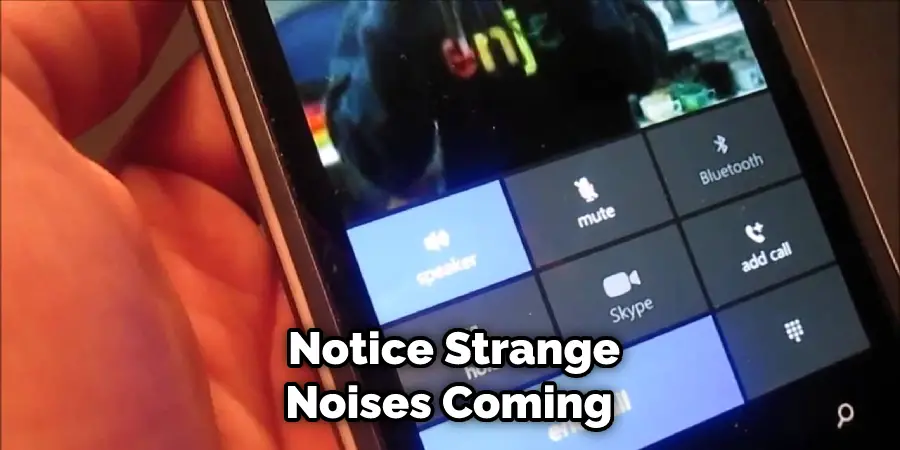
It’s also a good idea to install security cameras outside your home, as this can help deter potential eavesdroppers. Additionally, consider investing in a home security system that will alert you to any unauthorized entry into your home.
Step 8: Be Mindful of Your Surroundings
It’s important to be aware of your surroundings and always be mindful of who is around you when having private conversations. This doesn’t mean that you should constantly be looking over your shoulder or being paranoid, but it’s important to be cautious and aware.
If you suspect someone is eavesdropping on your conversations, don’t confront them directly. Instead, try to move the conversation to a more private location or use encryption methods when communicating electronically.
Step 9: Seek Professional Help
If you’re still feeling unsure about how to protect yourself from unwanted listening devices, it’s always a good idea to seek professional help. There are many companies and professionals who specialize in detecting and removing listening devices, as well as providing security solutions for your home or office.
By following these steps and being vigilant about protecting your privacy, you can prevent your neighbor from eavesdropping on your conversations and keep your personal information safe. Remember, it’s always better to be safe than sorry, so don’t hesitate to take action if you suspect your conversations are being monitored.
So, it is important to always remain cautious and take steps to protect your privacy and security at all times. With these tips and techniques, you can ensure that you are not being listened to by anyone, including your neighbors. Remember to always be aware of your surroundings and seek professional help if needed.
That’s it! You’ve now learned the steps for how to stop neighbor listening device. By taking the necessary precautions and following these steps, you can protect yourself from unwanted listening devices and secure your personal information.
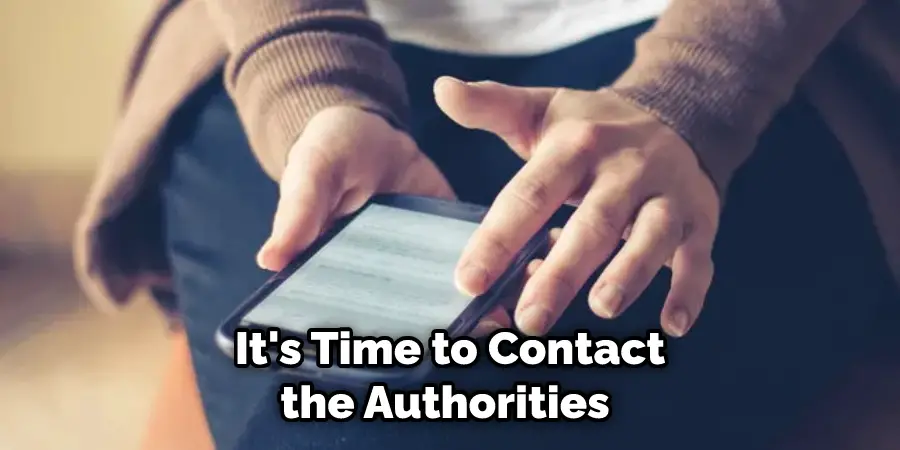
Things You Need to Know Before Stop Neighbor Listening Device
When it comes to matters of privacy and personal space, neighbors can often test the boundaries. For example, suppose you’re suspicious that your neighbor is using a device to listen in on your private conversations. In that case, you must take steps before confronting them or attempting to locate the listening device.
First, discover as much information as possible such as who installed it and how much they know about the device. Next, make sure you are familiar with any laws surrounding this area to understand where you stand. Finally, consider options for handling the situation depending on what kind of outcome you want, such as using an organization like the Electronic Surveillance Project.
Finally, if a confrontation does occur, remain polite and civil even if emotions run high. Being aware of what needs to be addressed upfront can make dealing with an intruder’s listening device easier in the long run.
Benefits of Stop Neighbor Listening Device
Stop Neighbor Listening Devices offer incredible peace of mind for homeowners. Not only does it drown out loud and disruptive noises from neighbors, but it also blocks out frequencies so that listening devices installed by other people cannot be used to spy on you or your family.
With a Stop Neighbor Listening Device, you won’t have to worry about alerts going off in the middle of the night when someone is trying to sneak in on your conversations. The device also offers total privacy so that users can feel secure in their own spaces without worrying about someone intruding on their conversation.
Overall, these devices offer premium security and peace of mind, an invaluable addition to any home.
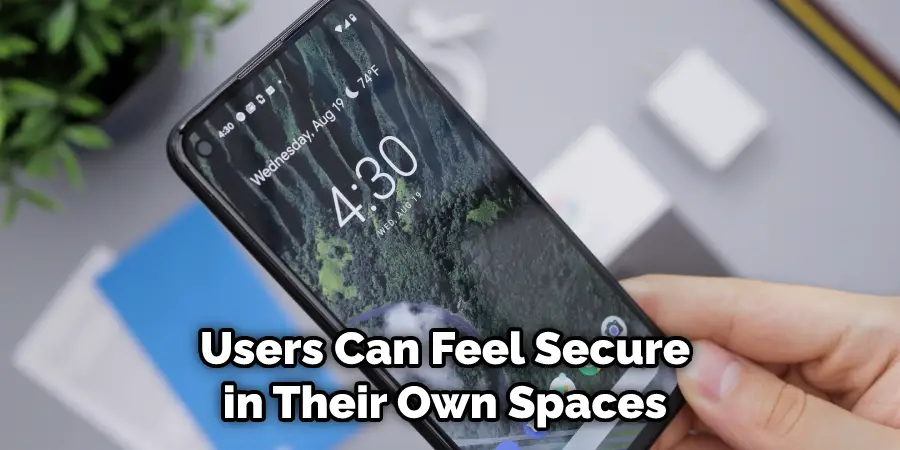
6 Common Mistakes People Make When Trying to Stop Neighbor Listening Device
1. Not Knowing Where to Start
The first mistake people make when trying to stop a neighbor from listening in is not knowing where to start. It can be difficult to figure out where the device is hidden and even more difficult to find it if the person hiding it is good at concealment.
The best place to start is by thoroughly searching your home and yard, paying close attention to any areas that seem out of place or suspicious.
2. Not Being Aware of The Signs
Another mistake people make is not being aware of the signs that a neighbor may be listening in.
If you notice that your conversations are interrupted by strange noises or static, or if your TV or radio suddenly turns off or on, these could be signs that someone is eavesdropping. It’s important to be aware of these signs so that you can take action quickly.
3. Not Having a Plan
Once you’ve determined that someone is indeed listening in on your conversations, it’s important to plan how to stop them. Otherwise, you’ll likely just end up manipulating their hands and giving them the information they want. There are a number of ways to stop a neighbor from listening in, including using counter-surveillance devices and changing your routines.
4. Not Being Cautious
Another mistake people make when trying to stop a neighbor from eavesdropping is not being cautious enough. This includes not taking steps to protect your own privacy, such as using counter-surveillance devices and encrypting your communications.
It also includes not being careful about what you say in front of other people, as even innocent conversations can give away sensitive information.
5. Relying on Others
Another common mistake people make when trying to stop a neighbor from listening in is relying on others for help. Whether it’s asking the police for assistance or hiring a private investigator, relying on others can often backfire and give the person you’re trying to stop even more information than they had before.
It’s important to remember that you’re the only one who can ultimately stop a neighbor from eavesdropping, so don’t put your trust in anyone else but yourself.
6. Giving Up
Finally, one of the most common mistakes people make when trying to stop a neighbor from eavesdropping is giving up too soon. It can be difficult to keep up the fight against someone who is persistent and has access to sophisticated eavesdropping equipment, but it’s important to remember that giving up is not an option.
If you’re feeling overwhelmed, take a break and regroup, but don’t give up entirely – otherwise, you’re guaranteed to fail.
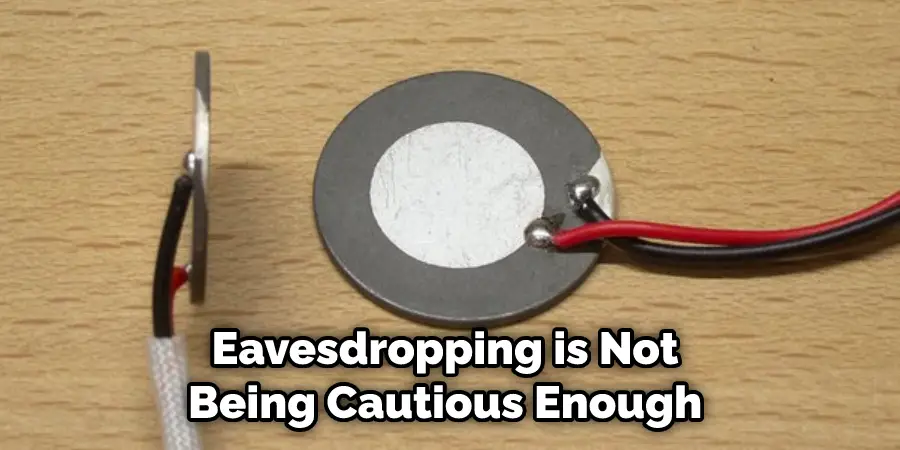
Conclusion
As unsettling as it can be, there are ways for everyday people to protect their privacy from unwanted listening devices in their homes or businesses. By detecting any potential eavesdropping equipment and taking steps to disable it immediately, you can ensure that nobody is spying on your conversations or activities without your knowledge or consent.
With some diligence and awareness, everyone has the power to keep their conversations private! Thanks for reading our post about how to stop neighbor listening devices.
